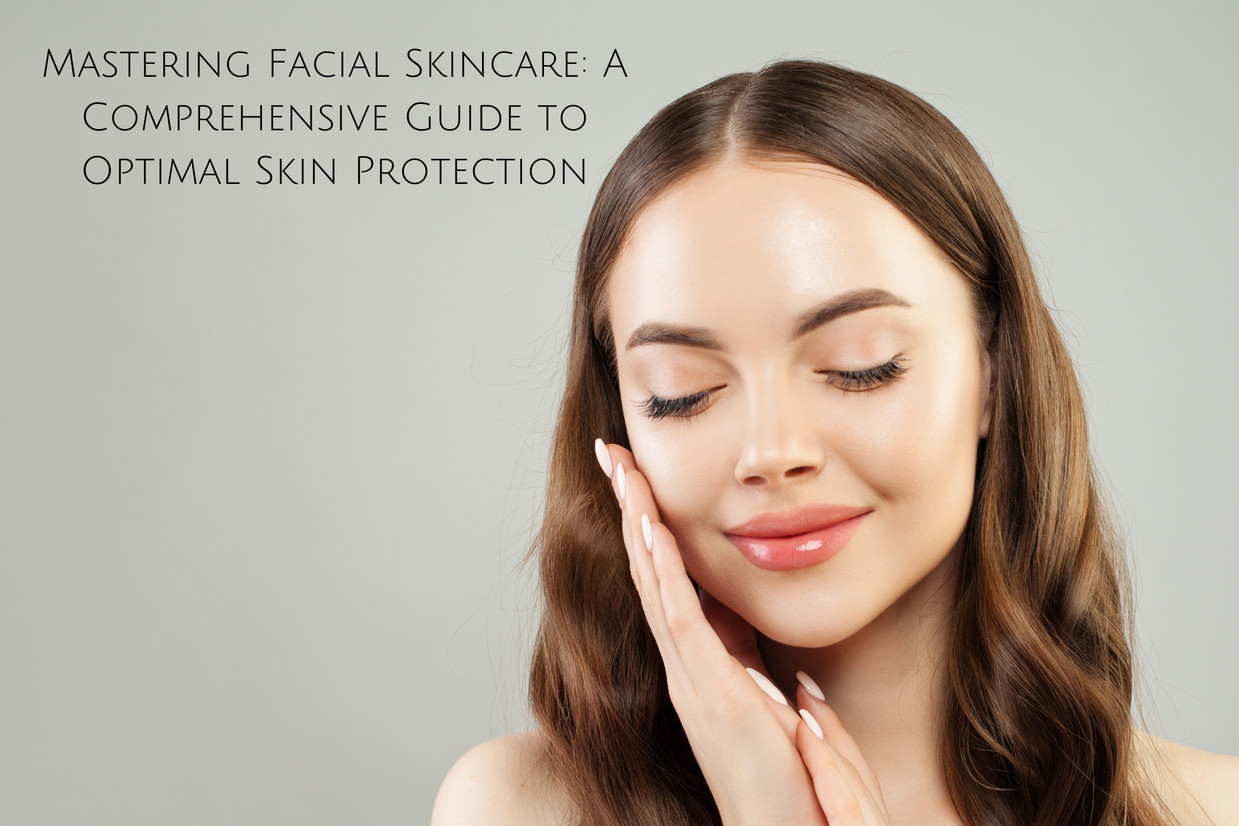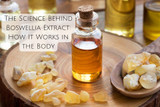Mastering Facial Skincare: A Comprehensive Guide to Optimal Skin Protection
Protecting your skin is essential for maintaining its health and preventing various issues, including premature aging and damage from environmental factors. Here are some general tips for effective skin protection:
Sunscreen:
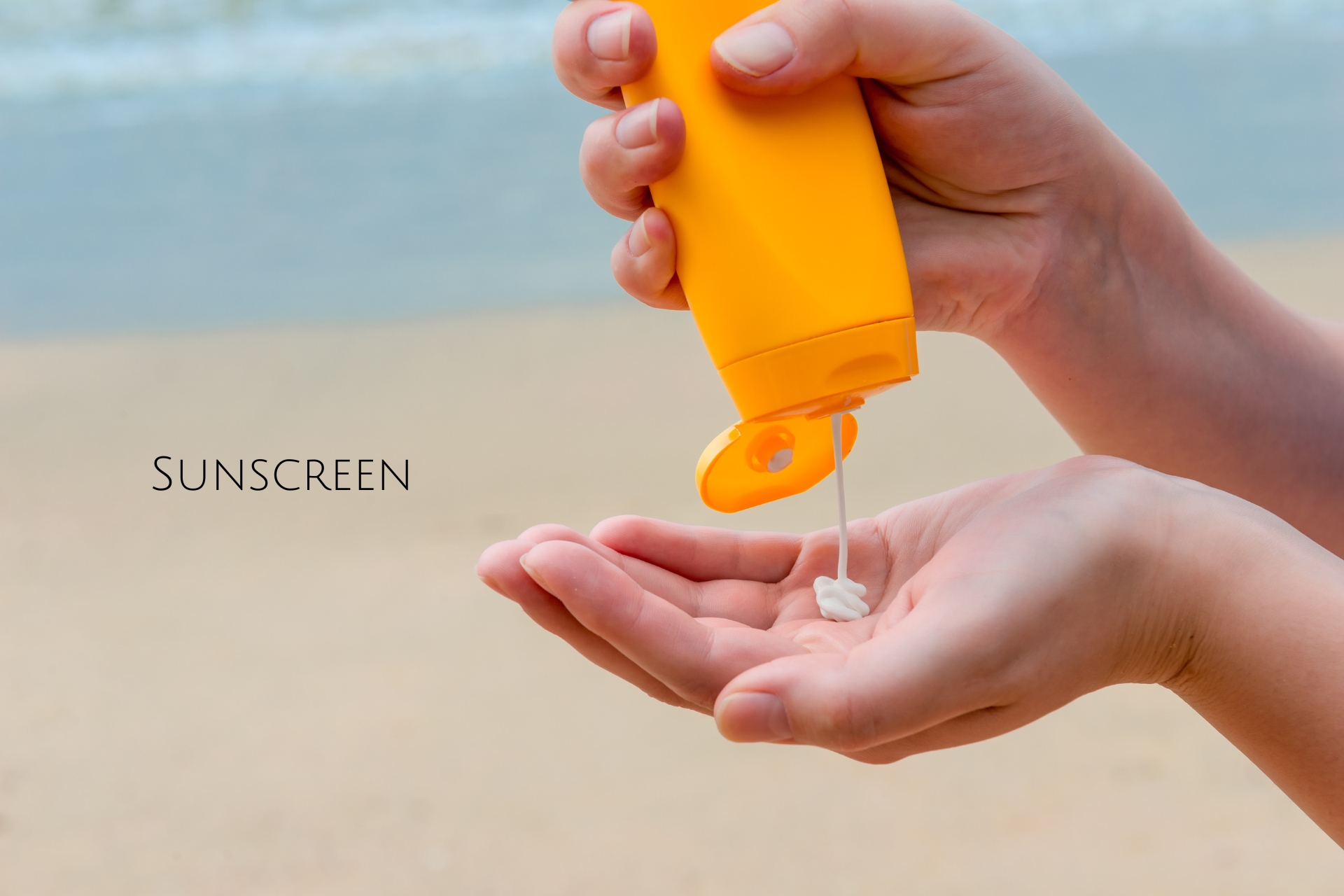
Sunscreen is a crucial element in protecting your skin from the harmful effects of the sun's ultraviolet (UV) rays. It acts as a barrier that absorbs or reflects UV radiation, preventing it from penetrating the skin. To use sunscreen effectively, choose a broad-spectrum formula with a sun protection factor (SPF) of at least 30. Apply it generously to all exposed skin, even on overcast days, and reapply every two hours or more frequently if swimming or sweating. Sunscreen not only helps prevent sunburn but also plays a vital role in reducing the risk of skin cancer and premature aging, including wrinkles and dark spots. Making sunscreen a daily habit is a simple yet powerful step in maintaining the health and appearance of your skin.
Moisturize:
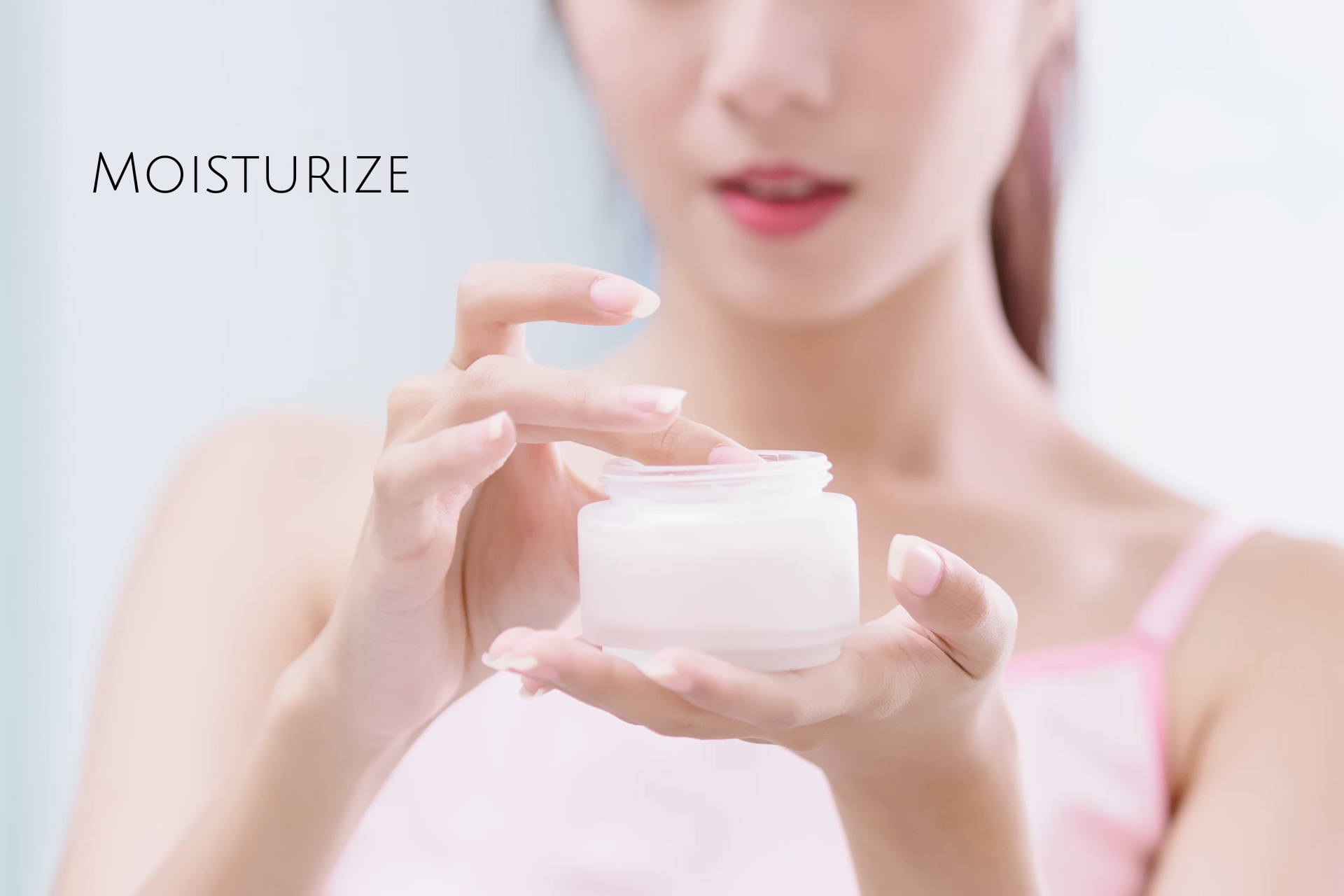
Moisturizing is a primary step in maintaining healthy and hydrated skin. A good moisturizer helps to lock in your skin's natural moisture, preventing dryness and promoting a smooth and supple complexion. It is essential to choose a moisturizer that suits your skin type—whether you have oily, dry, combination, or sensitive skin. For those with dry skin, opt for a richer, more hydrating moisturizer, while individuals with oily skin may prefer a lightweight, oil-free formula. Apply your moisturizer after cleansing, and make it a part of both your morning and evening skincare routines.
Cleanse:
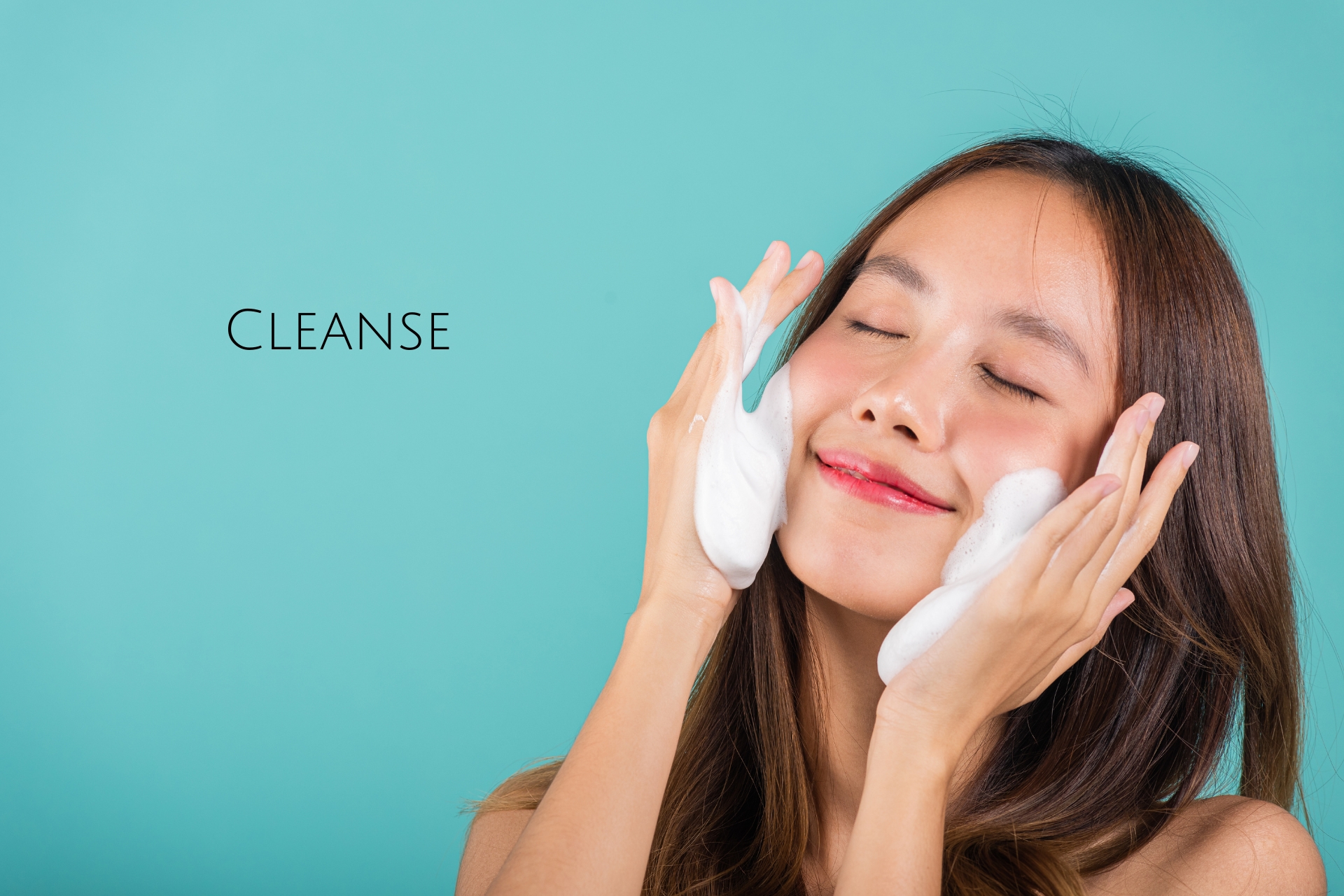
Cleansing is a fundamental aspect of skin care that involves the removal of dirt, oil, and impurities from the skin's surface. Regular cleansing helps to keep the pores clear, prevent breakouts, and promote a clean and refreshed complexion. It's important to choose a gentle cleanser that suits your skin type. For an effective cleansing routine, wash your face twice a day, in the morning and evening, using lukewarm water. Avoid using hot water, as it can strip the skin of its natural oils. Gently massage the cleanser onto your skin using circular motions, paying attention to areas with makeup or sunscreen. Rinse thoroughly and pat your face dry with a clean towel or napkin.
Stay Hydrated:
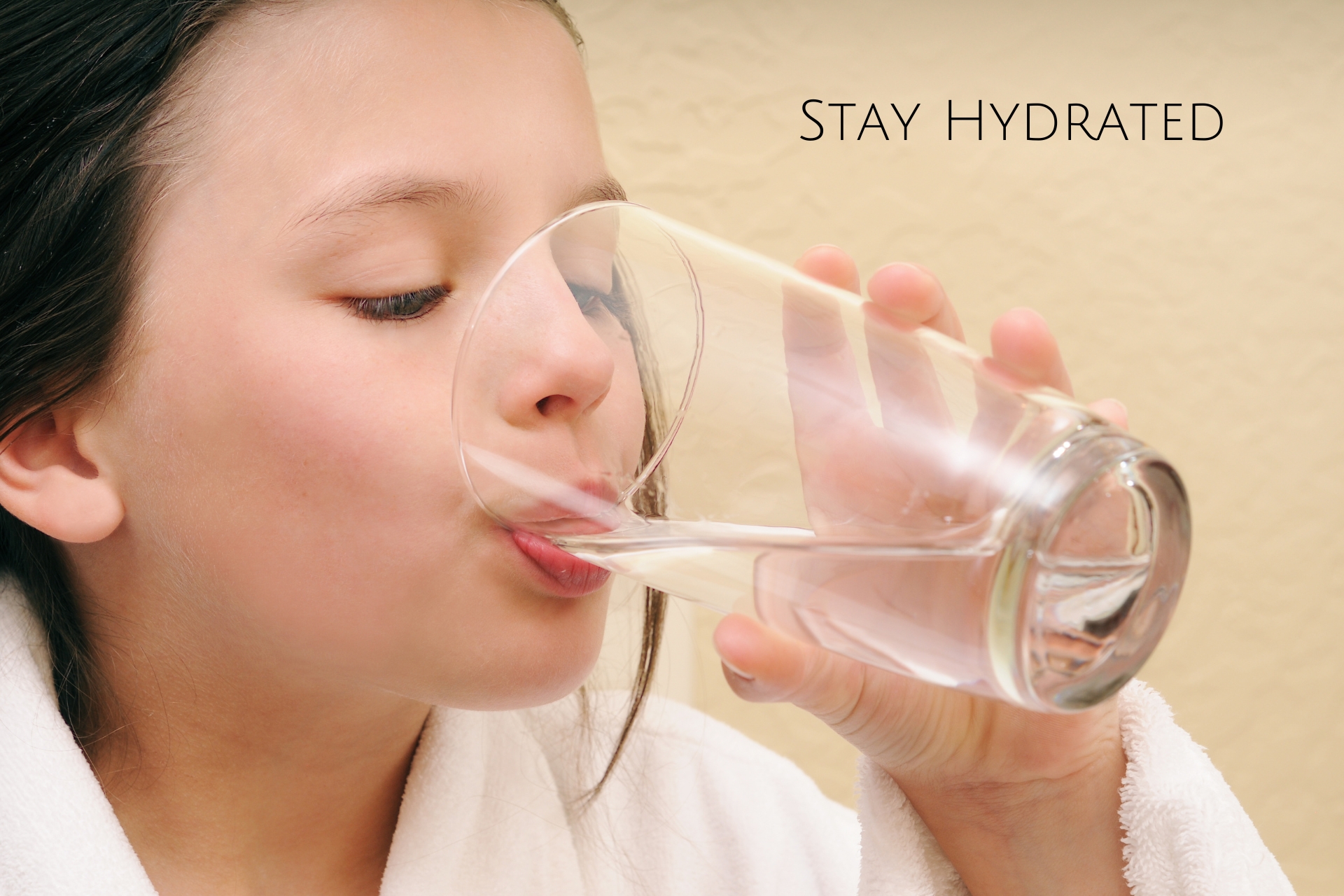
Drink plenty of water to keep your skin hydrated from the inside out. Staying hydrated is a crucial factor in maintaining overall health, and it also plays a significant role in the health and appearance of your skin. Proper hydration helps to keep your skin moisturized from the inside out, contributing to a radiant and plump complexion. It supports the skin's natural functions, such as cell turnover and collagen production.
To stay hydrated, aim to drink an adequate amount of water throughout the day. The recommended daily water intake can vary based on factors such as age, sex, climate, and physical activity level, but a common guideline is around eight 8-ounce glasses per day.
Healthy Diet:
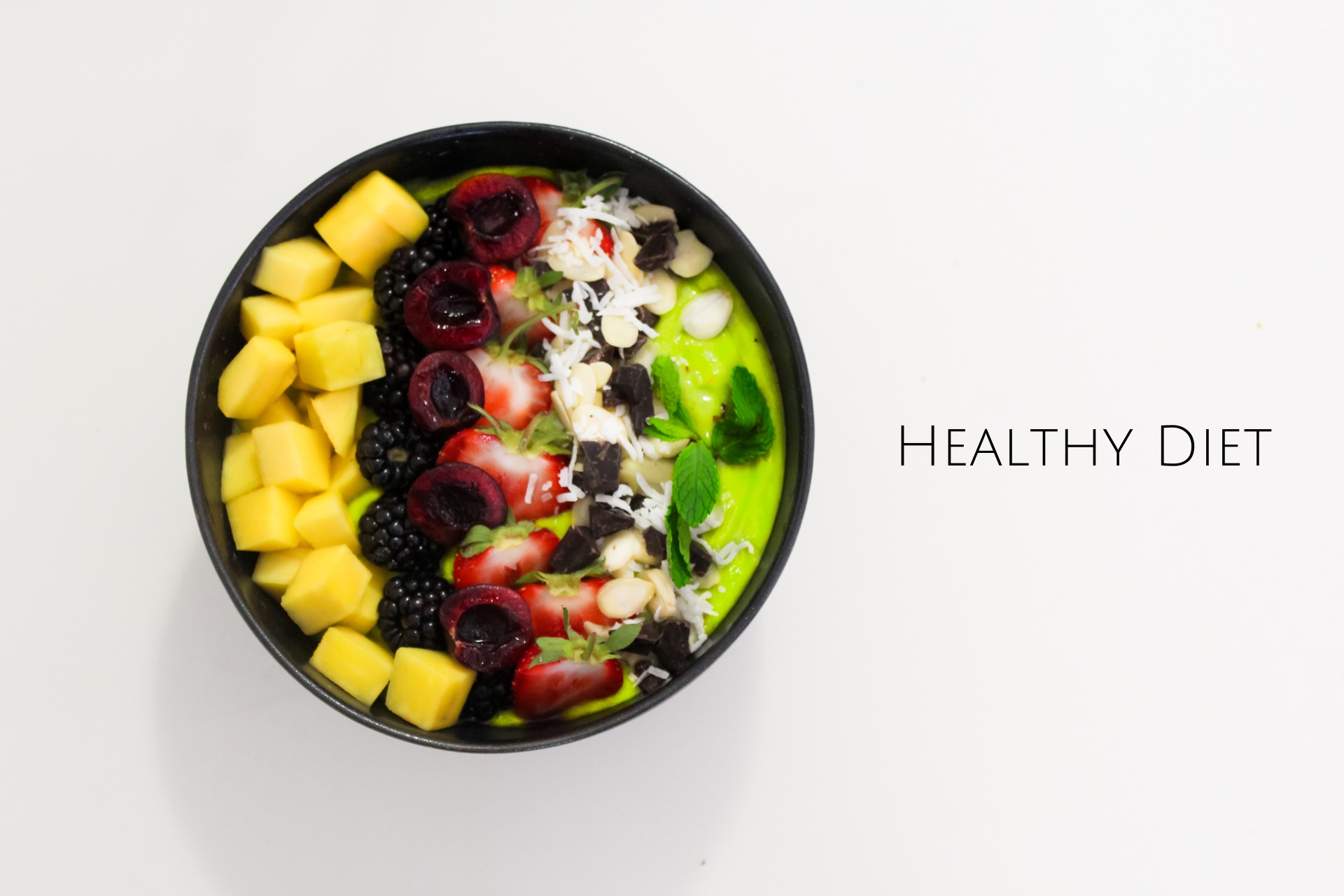
Take a balanced diet rich in fruits, vegetables, and whole foods. Nutrients like vitamins A, C, and E, as well as omega-3 fatty acids, contribute to skin health. A well-balanced and nutritious diet provides the essential vitamins, minerals, and antioxidants necessary for skin health. Incorporate a variety of nutrient-rich foods into your diet, including fruits, vegetables, whole grains, lean proteins, and healthy fats. These foods contain vitamins such as A, C, and E, as well as minerals like zinc and selenium, which play crucial roles in supporting skin health.
Protective Clothing:
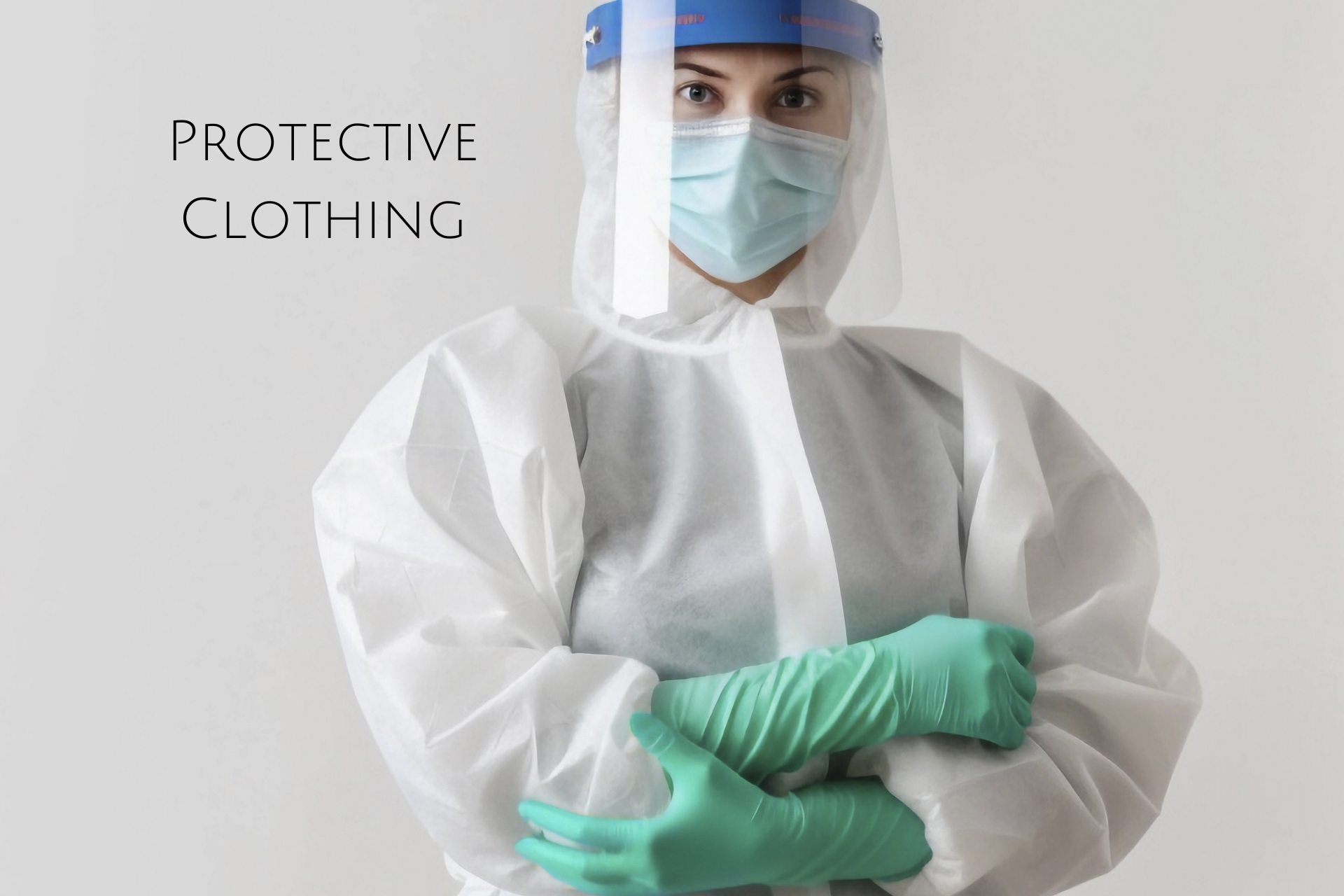
Wear hats, sunglasses, and protective clothing when you're exposed to the sun for extended periods. Wearing protective clothing is a key measure to shield your skin from the harmful effects of the sun and environmental factors. Choosing the right clothing can provide an additional layer of defense against UV radiation and reduce the risk of sunburn and long-term skin damage. Here are some tips for effective use of protective clothing:
Hats: Wear wide-brimmed hats that shade your face, neck, and ears. This helps to minimize direct sun exposure, especially during peak sunlight hours.
Sunglasses: Protect your eyes and the delicate skin around them by wearing sunglasses that block both UVA and UVB rays. Look for sunglasses with UV protection labeled on the lenses.
Long Sleeves and Pants: Opt for clothing with long sleeves and pants, particularly if you'll be spending extended periods outdoors. Lightweight, breathable fabrics like cotton or linen can provide protection without causing overheating.
UV-Protective Clothing: Consider clothing specifically designed with built-in UPF (Ultraviolet Protection Factor) to provide additional UV protection. UPF clothing is treated or woven with materials that block UV rays.
Seek Shade: When possible, stay in shaded areas, especially during the peak hours of sun exposure between 10 a.m. and 4 p.m.
Manage Stress:

Practice stress-reducing activities like meditation, yoga, or deep breathing exercises. Managing stress is essential for maintaining physical and mental well-being.
Get Enough Sleep:

Aim for 7-9 hours of quality sleep each night to allow your skin to regenerate. Getting enough sleep is a cornerstone of maintaining overall health and well-being, and it plays a crucial role in ensuring the health of your skin. Sleep is a restorative process during which the body engages in repair and regeneration, including the renewal of skin cells and the production of collagen. Adequate sleep also helps to reduce inflammation throughout the body, which is beneficial for skin conditions such as acne or irritation. Dark circles and puffiness around the eyes, often associated with sleep deprivation, can be minimized when the body has the opportunity to properly distribute fluids during a good night's sleep.
Regular Exercise:

Exercise improves blood circulation, which helps nourish skin cells and keep them healthy. Regular exercise is not only crucial for physical health but also significantly impacts the well-being of your skin. Engaging in routine physical activity improves blood circulation, which, in turn, nourishes skin cells and promotes a healthy complexion. Exercise also helps reduce stress, a factor that can contribute to skin issues. Additionally, the sweat produced during exercise can cleanse your pores, supporting the elimination of toxins. Whether it's jogging, yoga, or any form of physical activity you enjoy, incorporating regular exercise into your routine contributes to a radiant and healthy skin appearance.
Regular Skin Checkups:
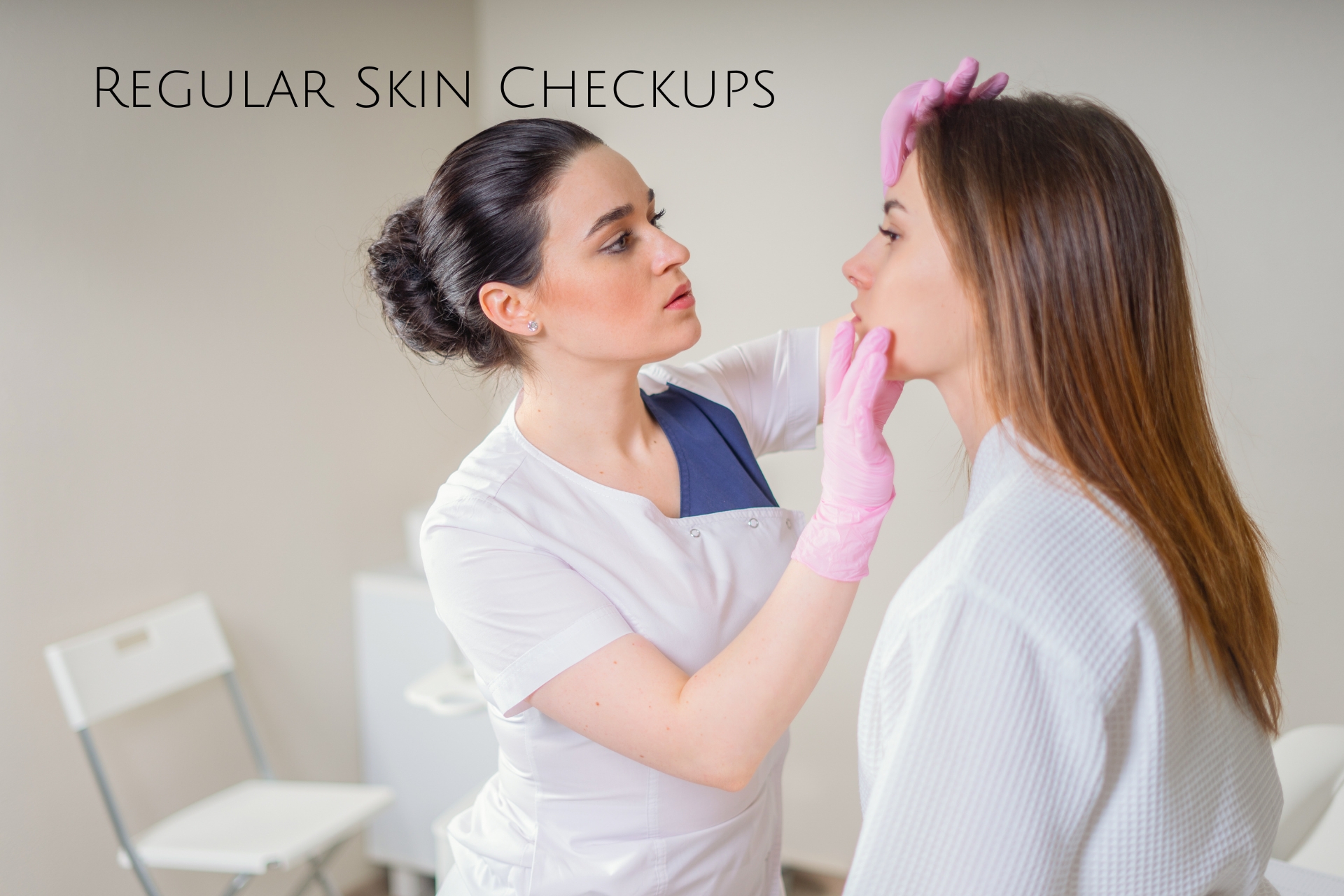
Regular skin checkups are essential for maintaining skin health and detecting potential issues early. Schedule appointments with a dermatologist for thorough skin examinations, especially if you have a history of skin conditions, moles, or prolonged sun exposure. Perform self-examinations regularly to monitor any changes, new moles, or irregularities on your skin.
The Bottom Line :
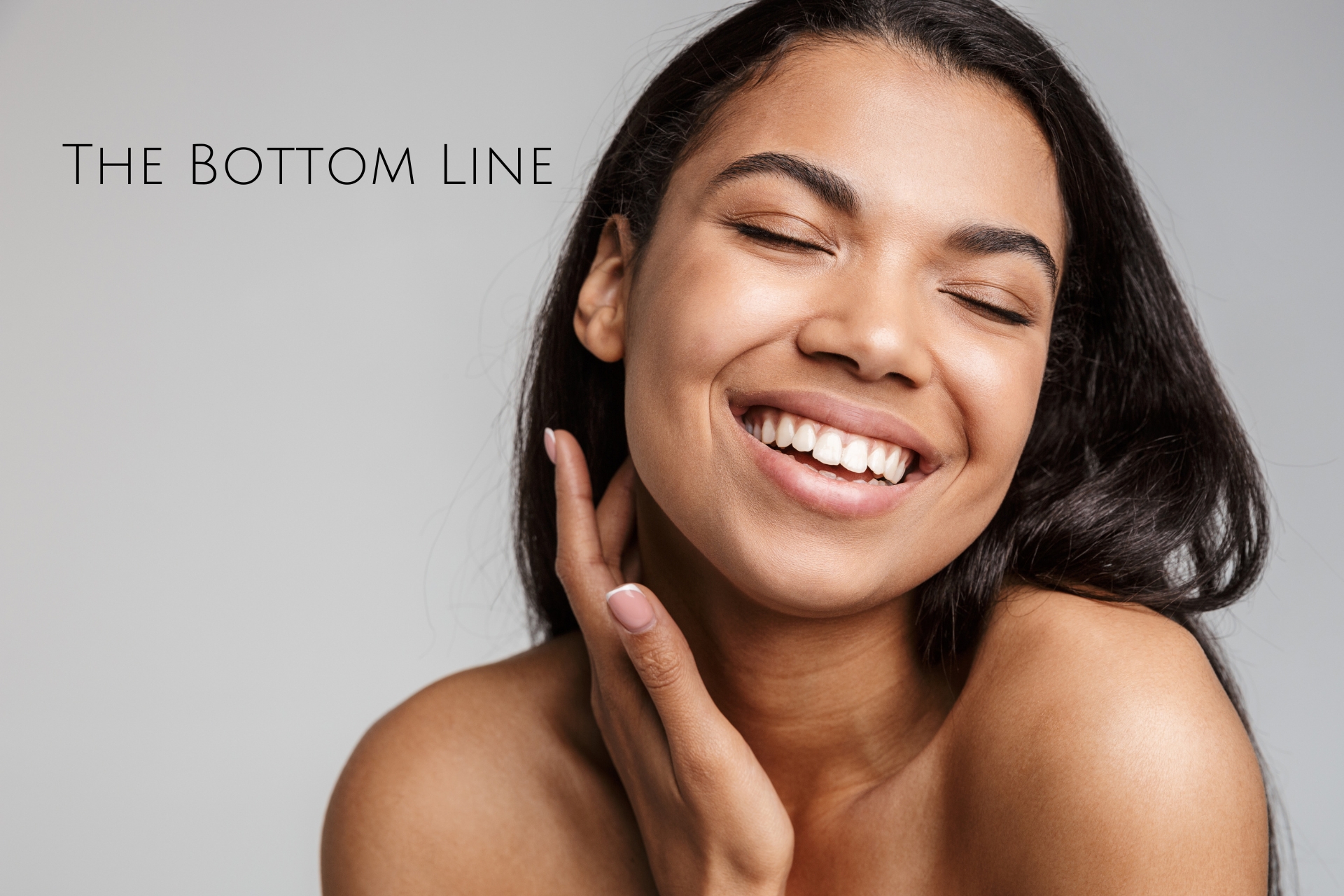
To protect your skin, particularly your face, adopt a comprehensive approach. Use a broad-spectrum sunscreen with at least SPF 30 daily, moisturize to keep your skin hydrated, and cleanse gently. Wear protective clothing like hats and sunglasses, and consider UPF clothing. Manage stress, prioritize adequate sleep, and maintain a healthy diet. Incorporate regular exercise, and use skincare products with antioxidants. Consistency in these practices forms a robust foundation for optimal skin protection, ensuring a healthy and radiant complexion.
Recent Posts
-
Water Memory: The Quantum Perspective on Why Water is More Than H₂O
Water is everywhere—covering over 70% of the Earth’s surface, coursing through our bodies, and essen
-
What Are Biofilms and Why Are They So Hard to Get Rid Of?
Biofilms are fascinating yet challenging structures that have significant implications for health, i
-
The Science Behind Boswellia Extract: How It Works in the Body
Boswellia serrata, also known as frankincense, is a resin obtained from the Boswellia tree that has

